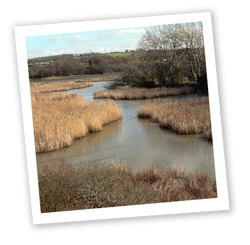|
|
habitats
Find out more
The Biodiversity Action Plan is made up of a series of documents produced from 2000 to 2005. Habitat Action Plans have been produced to provide a framework for action to conserve and enhance the Islandís biodiversity. These plans link with national Habitat Action Plans.There have been many changes in the countryside and the wildlife it supports throughout history. As a consequence of human activities, grassland on the Isle of Wight has declined in area by two-thirds since 1850, and even greater losses have occurred to heathland habitats.
 In
more recent times, there have been increasing pressures relating to built
development, whether for housing, roads or industry. Agricultural practice
has changed dramatically over the last 50 years and has resulted in change
to our countryside. An estimated 72 species are considered to have become
extinct locally within the last fifty years and very many more are in
decline. These losses are largely due to habitat change or loss.
In
more recent times, there have been increasing pressures relating to built
development, whether for housing, roads or industry. Agricultural practice
has changed dramatically over the last 50 years and has resulted in change
to our countryside. An estimated 72 species are considered to have become
extinct locally within the last fifty years and very many more are in
decline. These losses are largely due to habitat change or loss.
The Isle of Wight is a microcosm of south-east England and has, size for size, its fair share of the habitats characteristic of the region. In fact, it is unusually rich in species and habitats compared to other similar areas on the mainland. The chalk downlands, the maritime cliffs and slopes, and the estuaries are particularly important, not only in a regional context but also on a national and international scale. The mere fact that we are an island located off the south coast has consequences for the wildlife as well as for the human population.
| home | partnership | habitats | species | biodiversity opportunity areas | benefits of biodiversity |
biodiversity & you | advice | walks & events | library | contact |